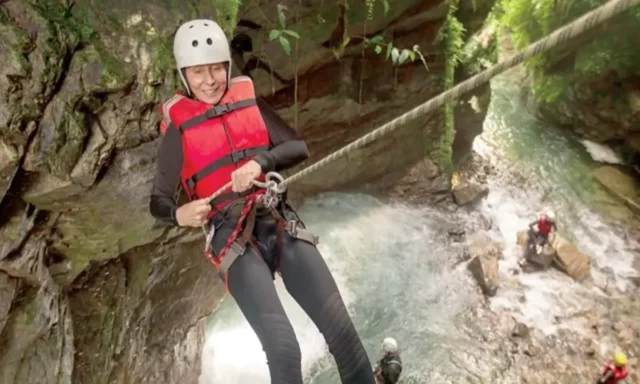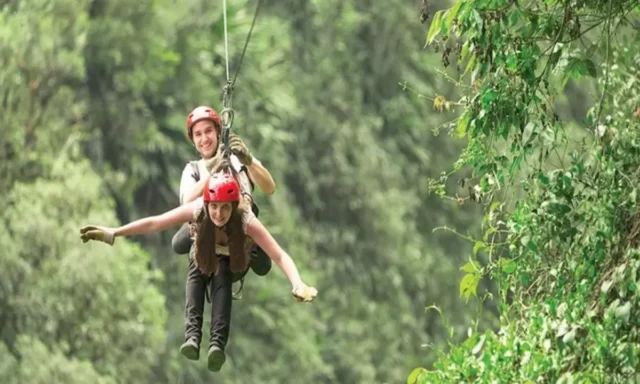A sworn statement from the companies that supports the experience and ability of their collaborators to develop adventure tourism would be the way out of an old conflict between the ICT and the tour operators.
The idea is to guarantee the continuity of this type of tourism in the country, while leaving the full responsibility of training and ensuring the suitability of their workers to the companies.
And it is that for years they have been “kicking the bucket” about the adventure tourism regulations that required certifying workers in this sector, since there are no organizations in the country that are responsible for certification.
At the same time, there are personnel who have been working in these areas for more than 20 years and in practice do not require more training than they already have, or they are people who were trained outside the country and whose certifications are not valid in Costa Rica.
In this sense, the idea is that this international training is allowed to receive an adventure tourism accreditation and give the tour operator the category of qualified operator.
After meetings of the public and private sectors, and after a public consultation of the proposal, the regulation could be signed in the next few days, since it is in the hands of President Rodrigo Chaves.

A definitive solution
“This reform, what is coming is to give a definitive solution to the problem that we have had for years (…) We have the case of people who can prove experience of many years in this and who do not have certification, but they do have the knowledge. We want to recognize this,” said Francisco Coto, legal director of the Costa Rican Tourism Institute (ICT).
With this final reform, companies could include among their staff accredited people as tour guides, staff who have the backing of their experience and experts with international certification for higher-risk activities, which can be approved.
However, doubts arise about the subject of the affidavit that the companies would make and the experience that these people would have for these less qualified activities, for which the deputies of the Tourism Commission ask that the safety of tourists be guaranteed before approving said regulation.
From a certification to an affidavit
“What worries me is how we are moving from a certification to an affidavit. That is the part that worries me, if it is true, it is not a profession, it is a trade, but it is a specialized technical trade,” said Ada Acuña, deputy for Social Democratic Progress.
“Delimiting the areas that are technical and others that are more risky or specialized is necessary to guarantee each of the adventure activities carried out in the country”, according to Carolina Delgado, legislator for Liberación Nacional.
Safety of tourists
Similarly, the issue of the safety of tourists and the image of the country is what worries María Marta Carballo, deputy of the Christian Social Unit. “It seems to me that there is a feeling that tourists who come to practice adventure tourism are not being given real security, it worries me because Costa Rica is a leading country in adventure tourism. It worries me and I cannot fail to mention that there are guides who have approached my office and do not agree with this issue, there is a certain sector of the union that does not agree with what has been proposed,” said Carballo.

Due to the fact that there are vested interests in this issue of adventure tourism, it cannot “fit” all the sectors involved, but it is the best alternative that could be found, according to William Rodríguez, Minister of Tourism.
Representatives from ICT, the Ministry of Health, the National Training Institute (INA) and some associations of tourist guides participated in the reform of the regulation.

For those who have experienced shifts in consciousness and know that more peace, joy, and love awaits in a better living environment. A bold shared vision. A living community and hub for innovation. A sustainable ecosystem for living and working. A model for the new future.https://resonancecr.com/
